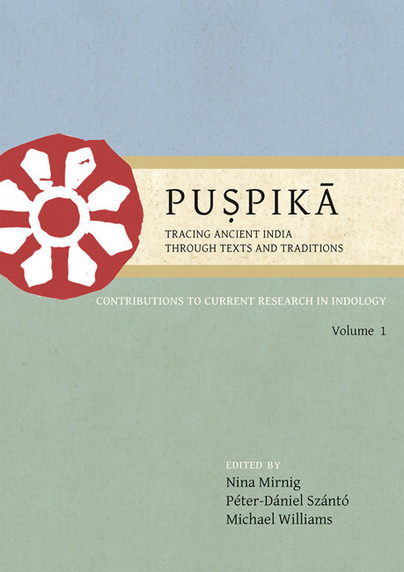

Pages: 128
ISBN: 9781782979395
Pub Date: March 2015
Imprint: Oxbow Books
Illustrations: b/w illustrations
Price:
£28.00
In stock
Pages: 486
ISBN: 9781842173855
Pub Date: December 2013
Imprint: Oxbow Books
Illustrations: b/w halftones
Price:
£38.00
In stock
Description:
Puṣpikā 3 is the outcome of the third and fourth International Indology Graduate Research Symposiums held in Paris and Edinburgh in 2011 and 2012. This volume presents the results of recent research by early-career scholars into the texts, languages and literary, philosophical and religious traditions of South Asia. The articles offer a broad range of disciplinary perspectives on a wide array of subjects including classical and medieval philosophy, esoteric knowledge and practices in the Vedas, Kālidāsa's great poem Meghadūta ('The Cloud Messenger'), soteriology in a 17th century Jain text, identity, orality and the songs of the Bauls in 20th century Bengal, and Sanskrit pedagogy.
It is perhaps commonplace to say that India is one of the world's richest and most enticing cultures. One thousand years have passed since Albiruni, arguably the first "Indologist", wrote his outsider's account of the subcontinent and two hundred years have passed since the inception of Western Indology. And yet, what this monumental scholarship has achieved is still outweighed by the huge tracts of terra incognita: thousands of works lacking scholarly attention and even more manuscripts which still await careful study whilst decaying in the unforgiving Indian climate. In September 2009 young researchers and graduate students in this field came together to present their cutting-edge work at the first International Indology Graduate Research Symposium, which was held at Oxford University. This volume, the first in a new series which will publish the proceedings of the Symposium, will make important contributions to the study of the classical civilisation of the Indian sub-continent. The series, edited by Nina Mirnig, Péter-Dániel Szántó and Michael Williams, will strive to cover a wide range of subjects reaching from literature, religion, philosophy, ritual and grammar to social history, with the aim that the research published will not only enrich the field of classical Indology but eventually also contribute to the studies of history and anthropology of India and Indianised Central and South-East Asia.
